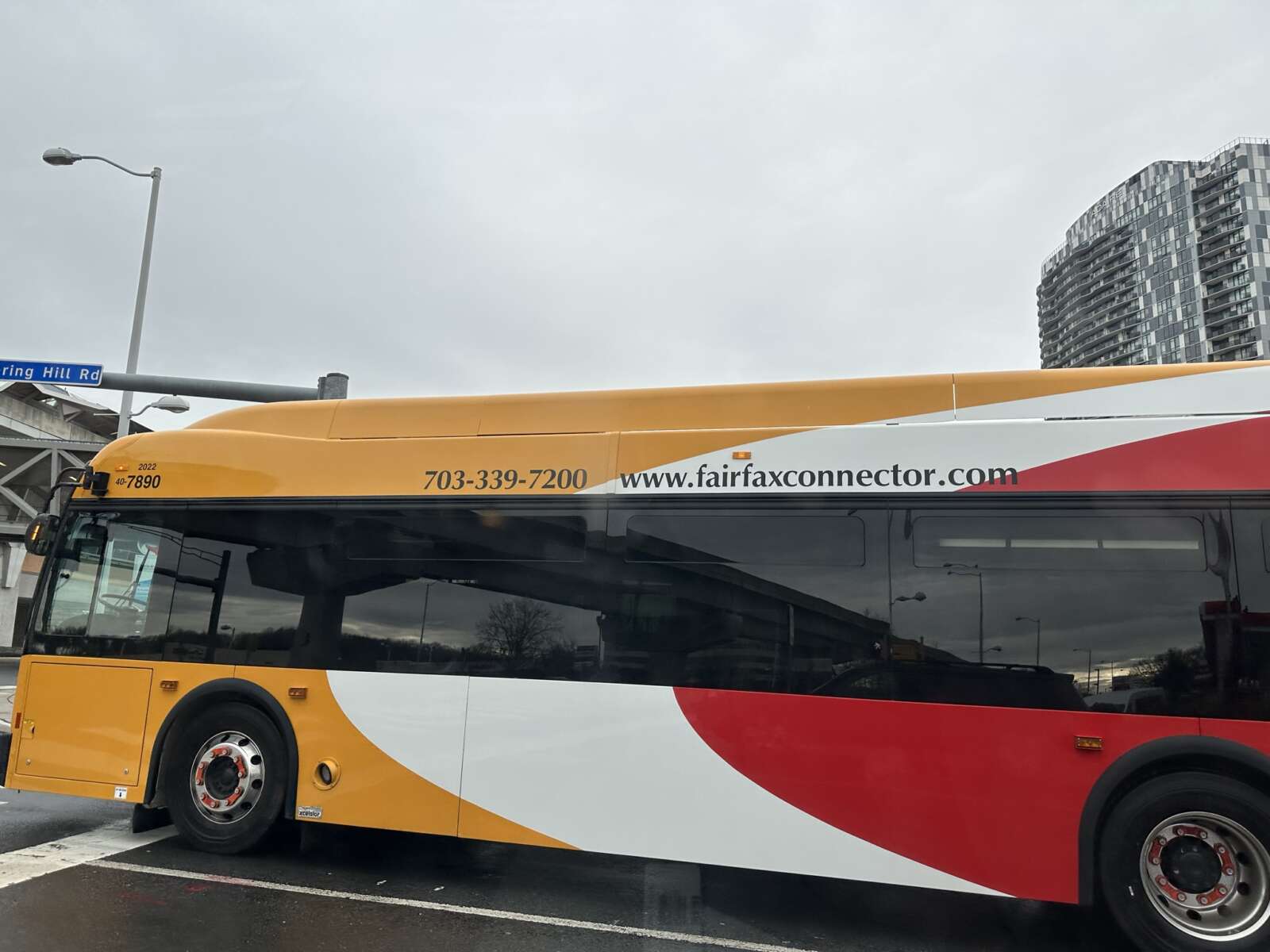
(Updated at 11:35 a.m.) Fairfax Connector workers have launched a strike after months of negotiations for a new labor contract with Transdev, the company that operates Fairfax County’s bus service.
Amalgamated Transit Union (ATU) Local 689, which represents about 638 bus operators and mechanics for Fairfax Connector, announced the strike just after midnight today (Thursday). Workers began hitting picket lines at garages in Herndon, Lorton and on West Ox Road in the Fairfax area at 2 a.m.
Due to the walk-off, Fairfax Connector has suspended service on 93 of its routes, starting at 9 a.m. The bus system serves approximately 26,000 passengers daily, according to its website.
“We encourage our users to please use alternative methods of travel. We apologize for any inconvenience,” the transit agency said.
The bus system can’t resume operations until the drivers and mechanics return to work, a Fairfax County Department of Transportation spokesperson confirmed.
🚨Due to a job action and work stoppage taken by the Amalgamated Transit Union (ATU) Local 689, Fairfax Connector Service will be suspended today at 9:00 AM. Please use alternative methods of travel. We apologize for any inconvenience. Check here for updates.
— Fairfax Connector (@ffxconnector) February 22, 2024
Members gave the union the authority to call a strike on Dec. 29, nearly a month after their existing contract with Transdev expired on Nov. 30.
In a news release, the union said there remains “a vast divide” between its demands and Transdev’s, and a strike became “unavoidable” after 12 bargaining sessions due to “Transdev’s unfair labor practices and regressive bargaining.” It also criticizes Fairfax County Board of Supervisors Chairman Jeff McKay for an alleged “refusal to weigh in.”
“The Union remains committed to bargaining in good faith to reach a tentative agreement on a new contract and intends to continue to meet with Transdev even while on strike,” Local 689 said in a statement. “Several key priorities in a new contract for Local 689 include true retirement security, more sick days, competitive wages for bus operators and mechanics with regional transit companies, and balanced labor-management rights.”
Transdev said in a statement that it’s “disappointed” the union initiated a strike despite what it describes as a “generous offer” that included $126,000 in annual pay and benefits for a majority of drivers and $128,000 annually in pay and benefits for 78% of mechanics represented by ATU.
“This unexpected action has had a severe impact on the community, particularly those who depend on the Fairfax Connector for their daily transportation needs,” the contractor said. “Transdev put forth a comprehensive proposal that includes significant wage increases, healthcare benefits, retirement savings, bonuses, guaranteed minimum hours, and additional perks tailored to employees of all experience levels.”
In a statement to FFXnow, McKay said it would’ve been “inappropriate” for him to interfere with the contract negotiations, since Fairfax County isn’t a directly involved party.
I have been in communication with the County Executive and his team throughout this process and was aware of the impasse. I was not, however, aware that a strike would occur which has left the almost 26,000 daily users of the Connector without the service they rely on. I fully support the ability of Connector drivers and mechanics to be treated, and compensated, fairly. The service they provide to our residents is high quality. I also support the ATU Local 689’s right to advocate on behalf of their members. My hope is that the union and Transdev can reach agreement on a contract that is in line with similar transit services in our neighboring jurisdictions and that respects the exemplary work of drivers and mechanics. Additionally, while transit service is essential, the cost is ultimately borne by our residents and must also be considered in these negotiations. Connector service needs to be sustainable not just now but in the future.
Connector workers last negotiated a contract in 2019. Then represented by ATU Local 1764, they went on strike for four days that December before signing an agreement to resume work on Dec. 8. A new, four-year contract was ratified on Feb. 29, 2020, averting a potential second strike.

Fairfax County may continue waiving permitting and installation fees for electric vehicle chargers, following an initial trial period of 18 months that showed mixed results.
At a land use policy committee meeting on Tuesday (Jan. 30), Fairfax County Board of Supervisors Chairman Jeff McKay said he hopes to extend the trial period by one year.
Despite losing revenue from the waived fees, the county should find ways to reduce barriers for EVs, particularly since there are already many existing barriers, McKay argued.
“From a value statement standpoint, being able to say that we do not charge [for] permits to encourage people to adopt EVs, I think, should be our standard,” he said.
It was unclear how much eliminating the fees incentivized installation of EV charging equipment — if at all, county staff said in a presentation. Between October 2022 and October 2023, fees for 38 commercial permits and 858 residential permits were waived.
The Dranesville and Sully districts had the most residential permits issued, while the Providence District led the way when it came to commercial permits. The 38 commercial permits issued during the waiver period represented an increase from 19 permits in 2021, 11 in 2020 and just one in 2019.
The data doesn’t include the number of chargers installed through each permit.
John Friedman, an engineer in the county’s Department of Land Development Services (LDS), said it’s difficult to directly correlate the fee waiver with EV utilization.
“We had hoped to be able to collect enough information to determine whether or not having a zero permit fee actually incentivizes installation. We weren’t able to do that because you don’t actually know why people are doing things,” Friedman said, adding that staff were surprised by the relatively high number of residential permits.
The county missed out on $125,000 in revenue over the trial period — a loss that Friedman was concerned likely needs to be offset by increases in other LDS fees.
“The big issue for us is the lost revenue,” Friedman said.
Braddock District Supervisor James Walkinshaw said the societal benefits of EV further the county’s equity goals.
“Everybody benefits if even an affluent person decides to move forward with an EV,” Walkinshaw said.
McKay hopes to file a board matter for consideration at the board’s May meeting, giving county staff time to continue evaluating the impact of the fee waiver on utilization. The current fee waiver pilot program will end on May 1.
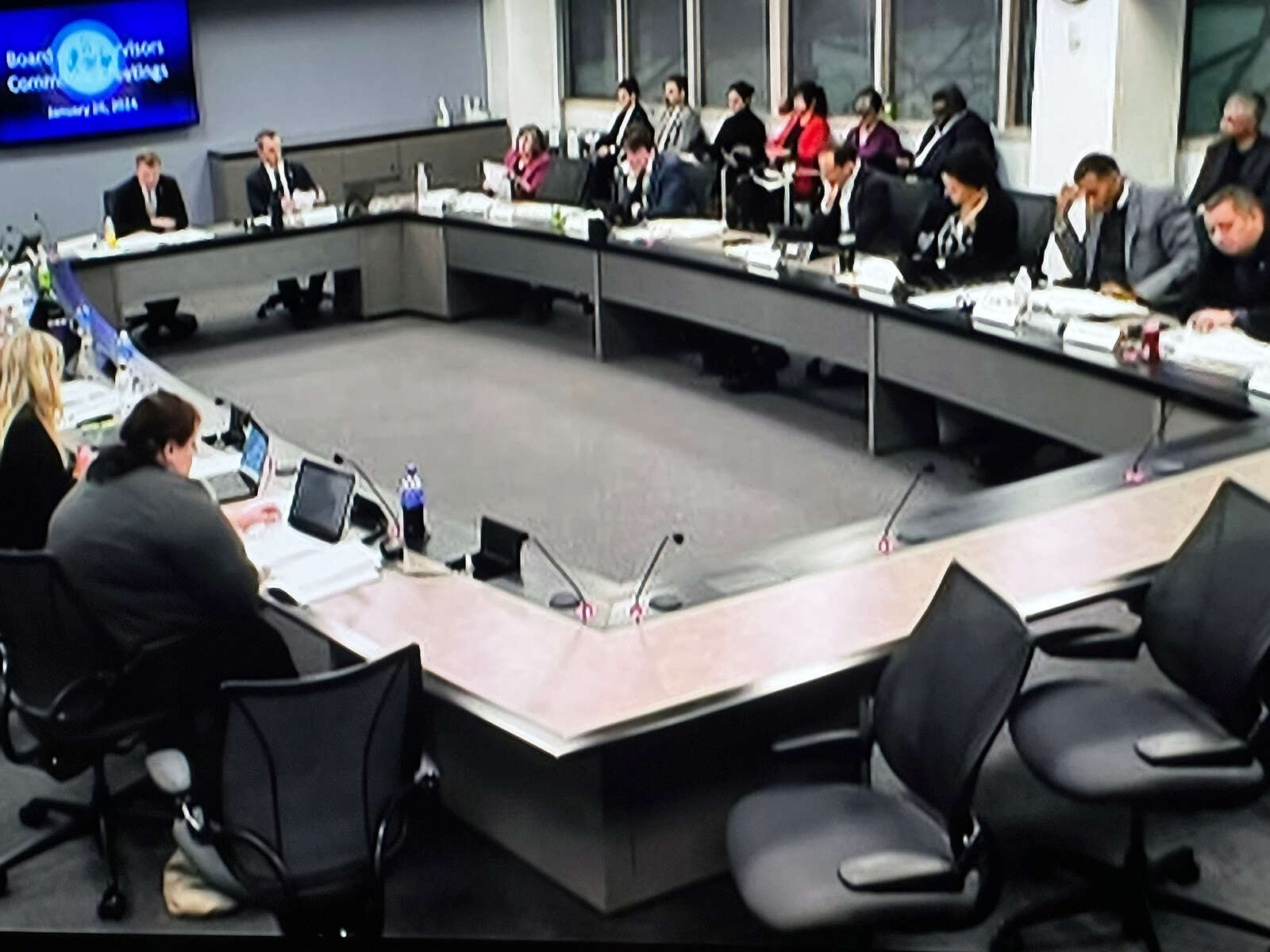
Updated at 10:40 a.m. on 2/1/2024 — The bill to make Fairfax County eligible for a casino has been assigned to the Virginia Senate Finance and Appropriations’ resources subcommittee, which is scheduled to meet at 4 p.m. today (Thursday).
Earlier: Local opposition to the prospect of a casino in Fairfax County continues to escalate.
Though they stopped short of officially denouncing it, county supervisors expressed skepticism of the bill being debated in the Virginia State Senate and aired frustrations about not being consulted about the potential development at a legislative committee meeting on Friday (Jan. 26).
In a letter generally supported by his fellow board members, Board of Supervisors Chairman Jeff McKay noted that the county, on principle, doesn’t usually oppose legislation that supports local authority, but this is one authority it didn’t request — unlike the cities currently eligible for a casino.
“I think what our focus needs to be on at this point in time is reminding folks we didn’t ask for this. This concept was derived in a vacuum,” McKay said at the committee meeting. “I saw the bill only after the General Assembly began their session, and we need to protect ourselves in the event this bill is approved by making sure that we put out there what our concerns are on this.”
Sent to House of Delegates Speaker Del. Don Scott and the Senate and House majority and minority leaders, the letter highlights a lack of engagement with county officials and the community by “stakeholders and the patron of this legislation.” Senate Bill 675 was filed by state Sen. Dave Marsden, who has confirmed that the developer Comstock proposed the casino, first in Reston and now in Tysons.
It also questions whether a casino would actually boost local commercial tax revenues as Marsden and other proponents have suggested.
Virginia taxes casino operators at a rate of 18 to 30%, depending on how much they make. That money goes into a Gaming Proceeds Fund run by the state treasury, which gives the equivalent of a 6-8% tax to each host locality. That means over 70% of the gaming tax revenue would go to the state, not Fairfax County, according to McKay.
“It’s a really bad financial deal,” McKay said, likening the revenue split to a school funding formula that county leaders argue shortchanges localities. “…We get hosed, we are the state’s ATM, and the financial model here at a minimum would have to improve dramatically before I would consider any referendum as a result of this bill.”
The four Virginia localities that have approved casinos — Portsmouth, Danville, Bristol and Norfolk — “were literally bankrupt” and in need of new revenue and an economic revitalization, McKay said. Petersburg, which might replace Richmond as a host city after the voters in the state capital rejected a casino referendum twice, has similarly struggled.
In contrast, Tysons continues “to thrive,” McKay’s letter says, despite the impact of the pandemic and remote work on offices. The area even has an emerging “entertainment district” in Capital One Center with a concert venue and hotel — facilities reportedly included in the casino development.
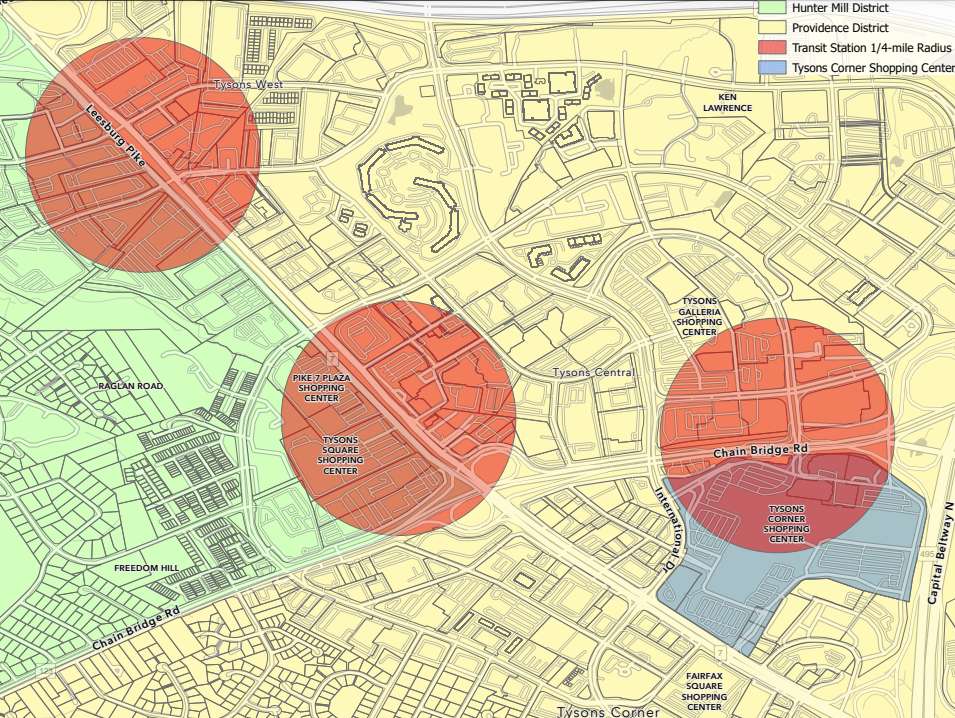
While more arts and convention space “is very much needed” in Tysons, the county’s lack of involvement in the casino talks and the revenue-sharing arrangement are concerns, said Providence District Supervisor Dalia Palchik, who represents most of Tysons.
Stressing that her office hasn’t seen any development plan, she praised the “balanced approach” of McKay’s letter, which doesn’t take a stance on Marsden’s bill but notes that “in its current form [it’s] likely to result in strong community opposition to a future referendum.” Read More

In their quest to boost the region’s limited housing supply, Northern Virginia leaders have explored a variety of potential solutions.
Arlington and Alexandria in particular garnered plenty of headlines — and legal scrutiny, in the county’s case — when officials voted separately last year to allow more dense housing in areas previously reserved for single-family detached homes, among other zoning reforms.
Fairfax County, however, has no plans at the moment to follow in its neighbors’ footsteps by eliminating single-family-only zoning, according to Board of Supervisors Chairman Jeff McKay.
Instead, the county hopes to increase and diversify its housing stock with more targeted policies, such as looser rules for accessory living units (ALUs) and workforce housing requirements, that can accommodate the different character and needs of different neighborhoods.
“Every county and city is different, and so, I’m not in a position to critique what Arlington and Alexandria have done,” McKay told FFXnow. “But we’ve been careful in Fairfax County to make sure that we can grow our affordable housing base and, at the same time, protect the integrity of our single-family neighborhoods…They’re in a different place [in their development schedule], and so, they have reached the point where they believe the only way they can address the ‘Missing Middle’ is to eliminate single-family [only] development. We are nowhere close to that point in Fairfax County.”
Size matters
The D.C. metropolitan area ranks 10th in the U.S. for “pent-up housing demand” due to a lack of supply and elevated mortgage rates, according to the National Association of Realtors. The tight supply fuels high prices that are expected to keep rising in 2024, peaking in June at a median of $935,930 for a single-family house, per a Northern Virginia Association of Realtors and George Mason University forecast.
Faced with limited space for new development, proponents of Arlington’s “Missing Middle” zoning changes and Alexandria’s “Zoning for Housing” initiative argued that opening up single-family-exclusive lots to different types of housing, such as duplexes and townhouses, will allow more units to be built, easing market pressures that have sent median single-family sales prices soaring over $1 million in both localities.
Though those measures didn’t exactly pass with ease, eliminating single-family-only zones in a place of Fairfax County’s size would be “a little bit more challenging,” says Jill Norcross, executive director of the nonprofit advocacy group Northern Virginia Affordable Housing Alliance (NVAHA).
“There’s just a lot more people, a lot more housing units and communities,” she said.
Of the 426,412 housing units in the county as of 2022, 46.1% are single-family detached houses, while 29.6% are multi-family residences and 24.2% are single-family detached homes, per the county’s most recent demographic report. In comparison, Arlington and Alexandria, respectively, are about 70 to 75% multi-family housing.
Parts of Fairfax County are dominated by single-family houses, which range from the mansions of McLean and Great Falls — the kind that Arlington leaders have said they’re trying to avoid — to older, smaller ranch-style or split-level homes like those found in Annandale or Groveton. Then, there are areas like Reston, where more than 80% of homes are townhouses, apartments or condominiums, according to Hunter Mill District Supervisor Walter Alcorn.
That variety means “a one-size-fits-all answer here is no good,” McKay says. Read More
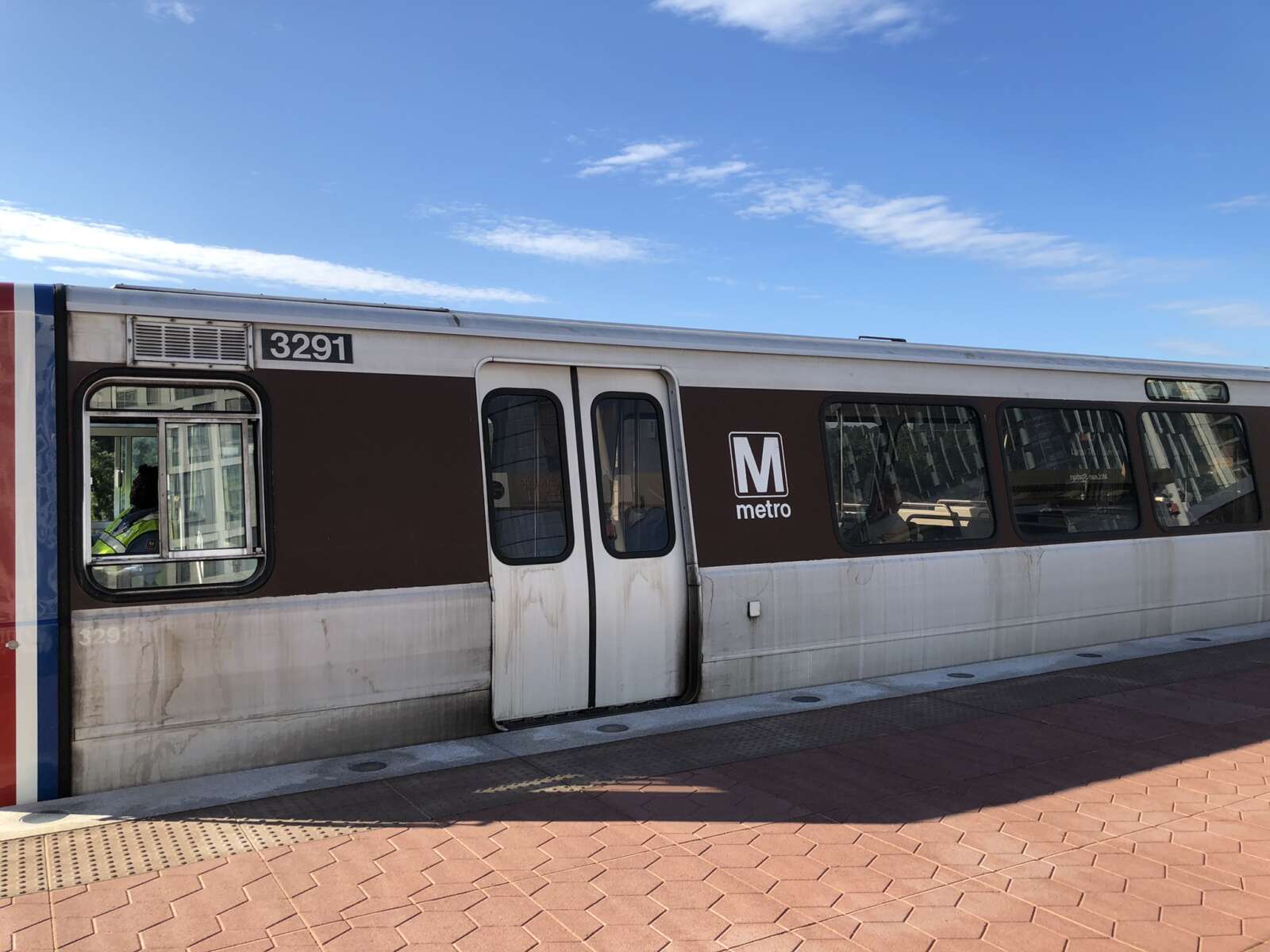
Local and state officials in Virginia say the path to dig Metro out of its looming $750 million deficit is uncertain — but action is necessary to avoid the significant service cuts, systemwide fare hikes, layoffs and station closures laid out in the transit agency’s newly proposed budget.
Leaders in Fairfax County — which already faces lean economic times — say they don’t plan to offer up additional funds unless jurisdictional and federal partners can throw some more skin into the game.
“What we have said is there’s absolutely no way that local governments can bear the responsibility of that entire bill,” Fairfax County Board of Supervisors Chairman Jeff McKay told FFXnow in an interview before the Washington Metropolitan Area Transit Authority released its official budget proposal.
WMATA has been sounding the alarm on its projected budget shortfall since June.
“What I think you’re going to see happen is there’s going to be some matching and some partnerships,” McKay said.
In a first glimpse of the proposed budget, which was released last Tuesday (Dec. 12), Metro General Manager Randy Clarke laid out what would happen if Metro can’t secure local, state and federal funds to address a problem that has been coalescing for years.
“Metro is facing an unprecedented, existential crisis that requires our region to rally together if we want to avoid the catastrophic impacts this budget would have on our region,” he said.
The system would close at 10 p.m. every day and shutter 10 low-ridership stations. Silver Line trains would turn back at Stadium-Armory, with trains running between Ashburn and that station. Similar reduced turn-backs would take place on the Red Line.
Trains would run every 15 minutes for most stations — a 17 to 67% increase in wait-times across the board on weekdays — and every 20 minutes on weekends for most stations — a 40 to 70% increase. Fares would also jump by 20%.
Among other cuts and more than 2,000 layoffs, Metro would use $193 million from its capital funds to cover operating maintenance expenses — essentially borrowing against the future.
“Such a large transfer of capital funds to operating expenses puts the system’s state of good repair, including safety and reliability, at risk, and threatens to delay, defer, decrease, or cancel several long-term projects to modernize the system,” WMATA cautioned in a press release.
But it’s unclear when and if local and state bodies will offer up enough funding. The subsidized system relies on annual subsidies from Maryland, Virginia and D.C., as well as fare revenue and federal dollars. The fiscal year 2025 budget begins July 1, 2024.
Metro needs subsidy increases of $180 million from Virginia, which has already allocated $348 million. Similar increases are sought from other jurisdictions. The upcoming General Assembly session will determine how much the state is willing to put down to assuage the bleeding after federal COVID-19 funding ends for the system. Read More
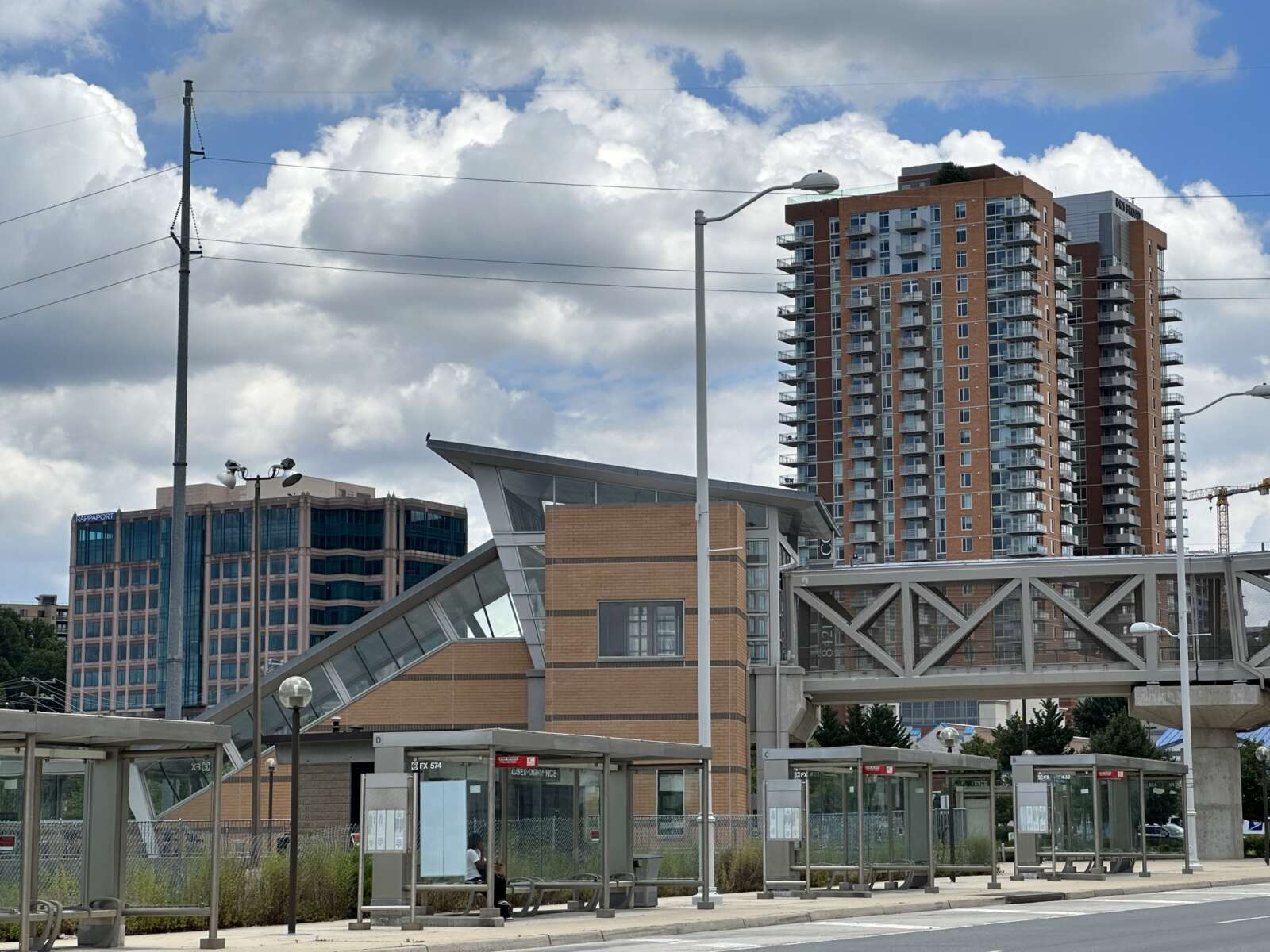
(Updated at 9:25 a.m. on 12/15/2023) The long-running effort to bring bus rapid transit (BRT) service to Route 7 is about to enter a new stage of planning, but for some Fairfax County leaders, the milestone doubles as a reminder of how much more still needs to be done to turn Northern Virginia’s vision into a reality.
The Fairfax County Board of Supervisors approved an agreement at its Dec. 5 meeting to help fund an engineering study and environmental analysis required to implement the bus system, which will serve the corridor from the Spring Hill Metro station in Tysons to the Mark Center in Alexandria.
Though they voted 9-1 in support of the agreement, some board members raised concerns about a lack of clarity on the project timeline from the Northern Virginia Transportation Commission, the regional organization that’s managing the planning process.
“I sit on NVTC, and I don’t have a comfort level yet that they have their hands wrapped around this,” Dranesville District Supervisor John Foust said. “Constantly, I’m asking for schedules — when is this going to happen? — and they never provide them.”
Foust — whose district includes the West Falls Church Metro area at the southern end of the BRT’s future Tysons segment — called NVTC a “great organization” and voted for the agreement, which was only opposed by Springfield District Supervisor Pat Herrity.
But Foust urged county and NVTC staff to provide a thorough breakdown of the long-range plan for the project known as Envision Route 7, including an estimate of when it would be completed “if everything goes as anticipated.”
“That would be very helpful, I think, in evaluating each step as we go forward,” he said.
Board of Supervisors Chairman Jeff McKay concurred, adding that the county doesn’t need specific dates but would find it “helpful” to get a more detailed timeline of key milestones to expect going forward.
He noted that NVTC has already been working on the dedicated Route 7 bus system for years, dating back to a transit study commissioned in 2013.
“The number one question I’ve had about this is, ‘What has been taking so long to get to this point and what does the future look like?'” McKay said. “What we do know is this will be a long-term project, but we need to have a reasonable understanding of what that means in terms of years.”
Fairfax County Department of Transportation acting director Gregg Steverson confirmed the request was “something we can provide to you.”
(Correction: This story initially misidentified Gregg Steverson as the NVTC acting director.) Read More

The Fairfax County Fire and Rescue Department is working on ways to improve service by reorganizing units and tackling recruitment and staffing challenges.
The changes were discussed at a Fairfax County Board of Supervisors’ safety and security committee meeting on Tuesday (Nov. 28).
The FCFRD is focused on using data to inform changes to operations, guiding how and when medics are converted to ambulances and where units are located, department officials told the committee.
According to a presentation delivered by Fairfax County Fire Chief John Butler and Operations Chief Dan Shaw, the department reorganized and reassessed its emergency medical services delivery between 2021 and 2022.
In January 2022, eight advanced life support units were converted to basic life support units. The following month, four more advanced life support units were converted.
The FCFRD has also studied ways to improve its EMS dispatch protocol and overall service delivery and deployment. In September, for example, the department implemented a new emergency medical protocol to ensure needs are properly understood as resources are dispatched to handle emergencies.
In January, the department plans to convert another eight advance life support units to basic life support. A paramedic will remain at each fire station.
The department also plans to introduce a new EMS specialist position that can offer a higher skill set and bring more advanced intervention and equipment to the incident. Shaw said the position is a big moment for the fire department.
“This allows the opportunity to employ a paramedic and deliver a higher level of service,” Shaw said.
Still, a national shortage of paramedics is a challenge due to a notable decrease in people pursuing public safety professions overall, officials said. To maintain its minimum staffing of 363 personnel, the FCFRD relies heavily on mandatory overtime.
The department has around 100 vacancies, according to FCFRD spokesperson Ashley Hildebrandt.
“While we are not immune to the recruitment challenges being experienced nationwide throughout the fire service, our department has worked, and continues to work, diligently to increase recruitment efforts to ensure the residents of Fairfax County continue to receive the high quality services the department is known for,” Hildebrandt said.
Springfield District Supervisor Pat Herrity said he continues to be concerned by the drop in the number of paramedics.
“Fairfax County needs to do better than the national trend and the national average,” he said.
The fire and rescue department is currently in the midst of analyzing its staffing model and hours of overtime recorded by personnel.
At the meeting, Board of Supervisors Chairman Jeff McKay countered Herrity’s assertion that the county needs to step up its efforts to address staffing challenges by stressing that the county and its public safety agencies are investing time and resources to tackle the issue.
“It is disgraceful to the people who are killing themselves recruiting people,” McKay said, adding that he’s “tired of this nonsense.”
McKay said repeating incorrect statistics about the number of vacancies — particularly in the police department — works against the county’s goal of recruiting more people and establishing the progress that has been made.
After reporting 206 vacancies in early April, the Fairfax County Police Department welcomed over 100 new trainees across two academy classes this year. A cohort of 56 recruits this spring was trumpeted as the FCPD Academy’s largest class in almost 10 years, and it was followed in the summer by an even bigger session with 59 people.
According to McKay, the FCPD’s vacancy rate is now closer to 127 positions.
The county’s Department of Public Safety Communications, which operates the 911 center, has also chipped away at its vacancies to the point where the department anticipated reducing required overtime this fall.
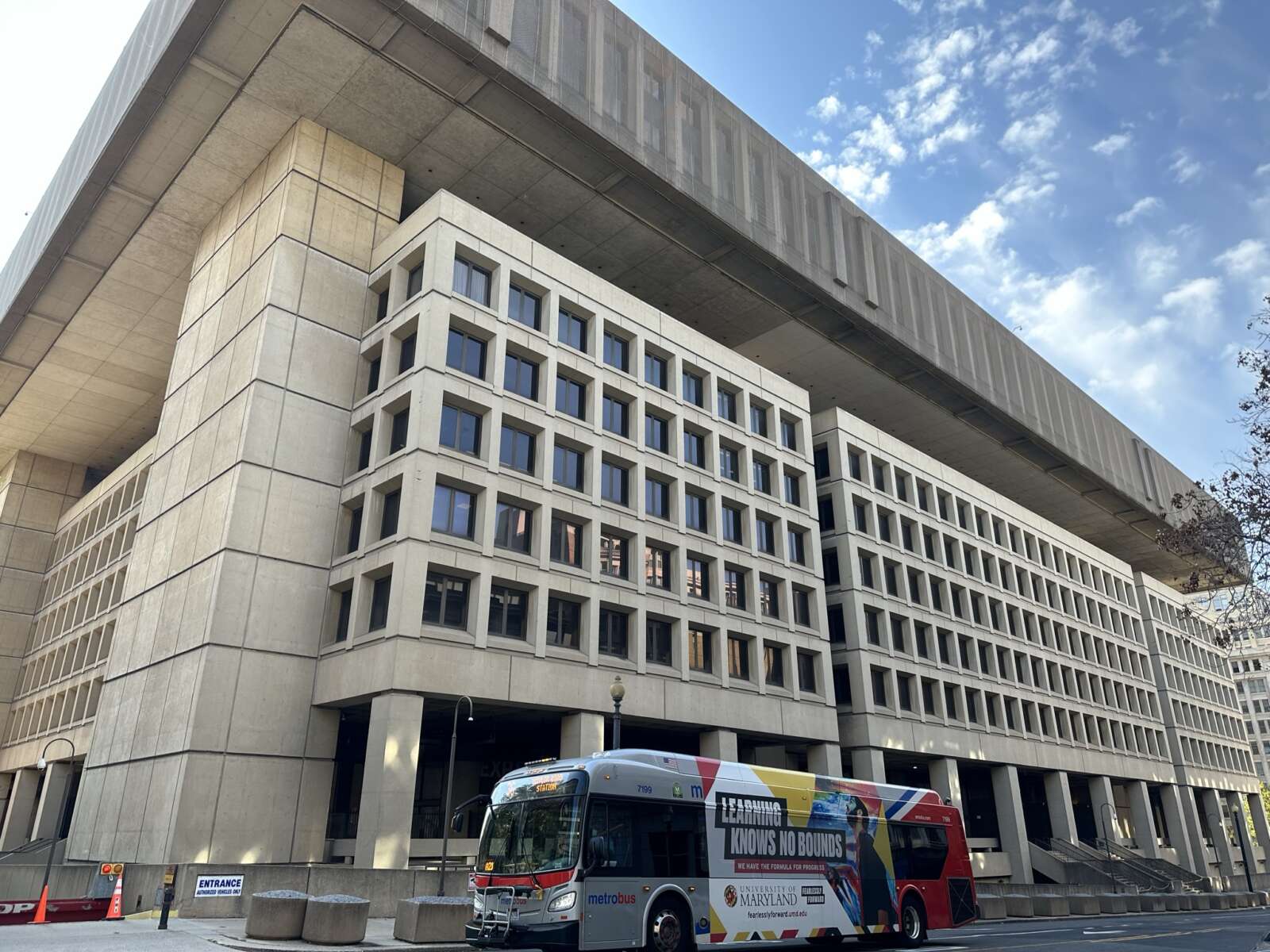
(Updated at 4:10 p.m.) Virginia’s elected leaders may not agree on issues like abortion access or education, but they remain united by the conviction that the Commonwealth would be a better host than Maryland for the FBI.
After coming together to pitch a Springfield warehouse as the best site for the law enforcement agency’s new headquarters, Republican Gov. Glenn Youngkin joined Democratic senators Mark Warner and Tim Kaine and Virginia’s bipartisan House delegation last Thursday (Nov. 9) to blast the federal government for awarding the facility to Prince George’s County instead.
“It was outrageous,” Warner said in a press call earlier that day. “I mean, Virginia clearly was the better case. Virginia clearly was winning the first set of criteria. The fact that political pressure was put on to try to change the criteria really stunned me.”
Their outrage was echoed by Fairfax County Board of Supervisors Chairman Jeff McKay, who has called Springfield a “no-brainer” choice for the FBI’s new headquarters.
“This is profoundly disappointing and defies common sense,” McKay said in a statement to FFXnow. “The FBI headquarters should be strategically located near the training academy in Quantico, a short VRE ride from the Springfield site. This decision will not serve the long-term needs of the FBI or its employees nearly as well as the Virginia site would.”
The General Services Administration (GSA) announced Thursday that it has selected a 61-acre site near the Greenbelt Metro station in Maryland to serve as the FBI’s new headquarters campus, confirming an initial report by the Washington Post that came out a day earlier.
“The site was the lowest cost to taxpayers, provided the greatest transportation access to FBI employees and visitors, and gave the government the most certainty on project delivery schedule,” the agency said in a press release. “It also provided the highest potential to advance sustainability and equity.”
The decision appears to have concluded a years-long effort to replace the FBI’s aging hub at 935 Pennsylvania Avenue NW in D.C. that dragged on through four presidential administrations.
However, a previously confidential report released by the GSA showed that a site selection panel convened this summer had recommended the Springfield site — currently known as the GSA Franconia Warehouse Complex at 6808 Loisdale Road — as the one “most advantageous to the Government.”
The panel, which consisted of two GSA employees and one FBI employee, noted that the site had the advantage of already being owned by the federal government and had more capacity for an expansion than the Greenbelt site, which ranked the lowest of the three options on that criteria.
The Greenbelt site came out ahead of the former Landover Mall, also in Prince George’s, but it was the “least advantageous” when it came to the top criterion: proximity to other facilities critical to the FBI, including its training academy in Quantico and federal agencies in D.C. like the Justice Department.
Further raising eyebrows in Virginia, FBI Director Christopher Wray rejected the proposed relocation to Greenbelt in an Oct. 12 letter first reported by the Washington Post, stating that former GSA Commissioner of Public Buildings Nina Albert’s previous job with Metro created “unresolved” conflict-of-interest and transparency issues. Read More
(Updated at 10:55 a.m. on 11/10/2023) About 40% of registered Fairfax County voters participated in this year’s general election, which decided state and local representatives who will shape policies on issues from abortion to land use in the coming years.
As of Friday (Nov. 10), 308,855 of the county’s 787,171 registered voters cast a ballot — a 39.2% turnout rate, according to unofficial results from the Virginia Department of Elections.
(Correction: The Virginia Department of Elections results previously indicated that 382,573 ballots had been cast in the election, a 48.6% turnout rate. This story has been revised to reflect the updated numbers.)
That falls short of the 44.3% turnout and 315,836 ballots cast in 2019, when the Fairfax County Board of Supervisors, school board and all General Assembly seats were last up for grabs.
However, it still exceeds the turnout seen in earlier election cycles dating back to the beginning of this century, which hovered around 32% with a low of 30.3% in 2015, per county returns.
Eric Spicer, Fairfax County’s director of elections and general registrar, declined to comment on this year’s turnout numbers or speculate on “why they may differ from past years.”
The general election on Tuesday (Nov. 7) continued a trend of increased early voting that began after Virginia expanded absentee voting to all registered voters in 2020. This year, the county received 36,859 mail ballots on election night alone — more than the total number of absentee votes (36,584) in the 2019 general election.
There were 64,371 ballots cast through early voting, which ran from Sept. 22 to Saturday, Nov. 4, though the vast majority of voters still went to in-person polls on Election Day. Mail-in ballots will be counted until noon on Monday, Nov. 13, as long as they were postmarked on or before Nov. 7.
All election results, including for the still-to-be-determined Vienna Town council race, will be certified as final on Tuesday, Nov. 14.
Democrats celebrate near-sweep
The status quo largely held in Fairfax County, at least in terms of political parties, as candidates endorsed by the Democrats won every state contest and almost every local contest on the ballot.
Sheriff Stacey Kincaid and Commonwealth’s Attorney Steve Descano were both reelected with no official challengers, though Descano’s opponent for the Democratic nomination, Ed Nuttall, endorsed a write-in campaign.
Descano’s victory was matched in Arlington by Parisa Dehghani-Tafti, who also first took office in 2020 on promises of criminal justice reform. Their Loudoun County counterpart, Buta Biberaj, however, is trailing by around 1,000 votes.
“Thank you to the people of Fairfax County for choosing me to serve another four years,” Descano said in a statement highlighting his reform efforts. “…I’ve still got a lot of fight in me — and we’ve got the momentum on our side. I’m eager to keep working for the people of Fairfax, and to realize a future where safety and justice do walk hand-in-hand.”
I've still got a lot of fight in me — and we've got the momentum on our side. I'm eager to keep working for the people of Fairfax, and to realize a future where safety and justice do walk hand-in-hand.
— Steve Descano (@SteveDescano) November 8, 2023
Chris Falcon, a deputy clerk for the Arlington Circuit Court, defeated retiring Fairfax County Circuit Court Clerk John Frey’s chief deputy clerk and chosen successor, Gerarda Culipher, with nearly 63% of the vote. Falcon has pledged to make circuit court cases accessible through Virginia’s statewide case information system.
With Democrats set to control both the state Senate and House of Delegates, the Fairfax County Democratic Committee characterized the results as “a clear rejection of the radical Republican agenda” in favor of “abortion healthcare rights, public education, gun safety, voting rights, and more.” Read More
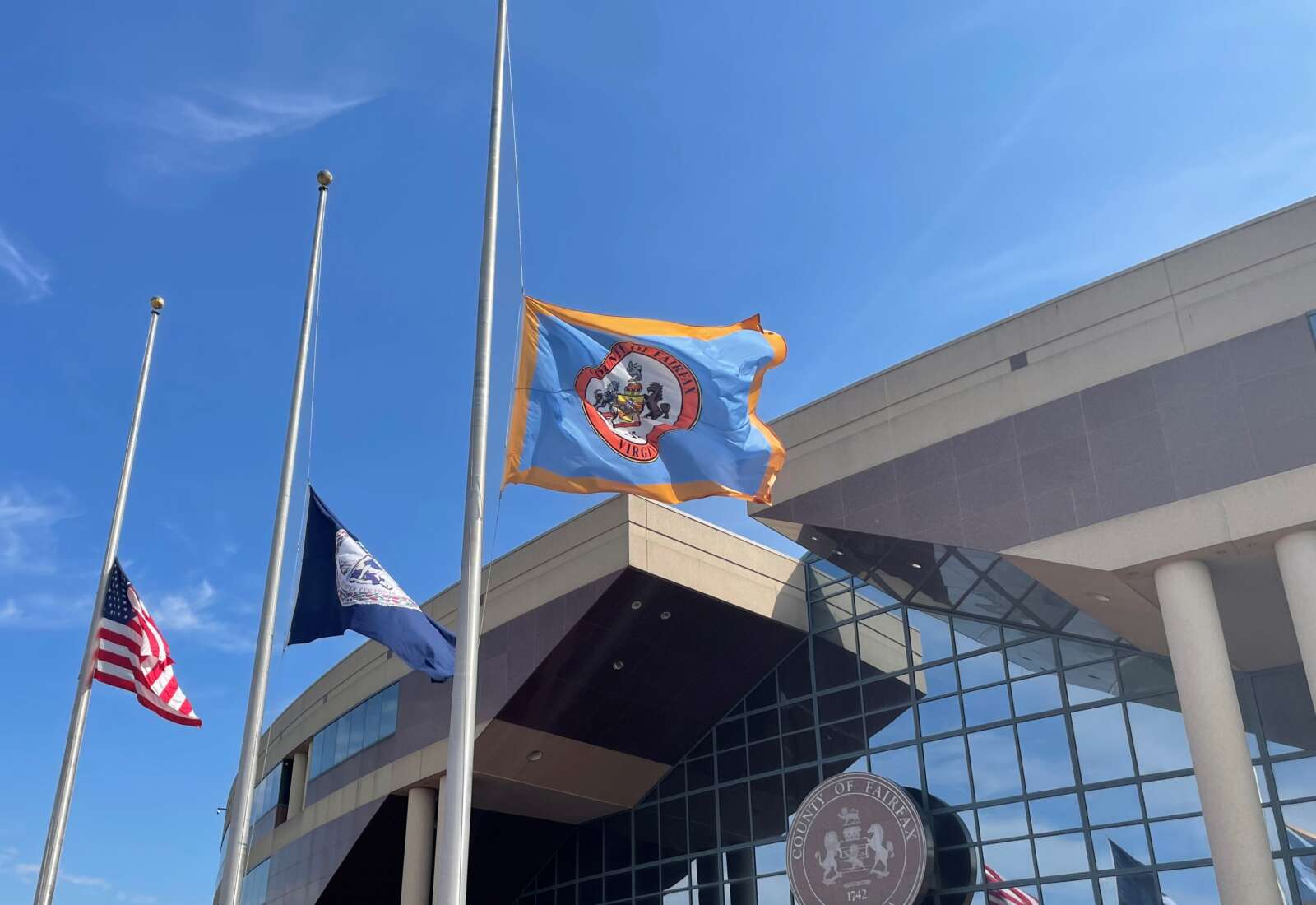
Family members of a Fairfax native and Woodson High School graduate are among the 150 people reportedly taken hostage by the Palestinian militant group Hamas when it attacked Israel on Saturday (Oct. 7).
Fairfax County Board of Supervisors Chairman Jeff McKay acknowledged the violence that has now gripped Israel and the occupied Palestinian territory of Gaza for four days to open today’s board meeting.
“All of us are in shock over what’s happening in the Middle East and the devastating violence that is occurring in Israel and Palestine, including a lot of kidnapping of family members,” McKay said. “[That includes] one of our own, W.T. Woodson graduate Abbey Onn, who’s lived in Israel since 2015, and we know that these attacks are affecting a lot of folks in our community.”
In media interviews, Onn has said that her cousins, ranging in age from 12 to 80, were taken from their home near the Gaza Strip on Saturday. She lost contact with them until the next day, when she saw her 12-year-old second cousin being held by militants in a video posted on Instagram.
Onn told WJLA that her plea for her relatives to be safely returned is “is not political, this is humanitarian.”
“These are people,” she told the TV news station. “These are someone’s grandmother, this is an 80-year-old woman and a 13-year-old girl with special needs, and children and parents.”
Described by an Israeli military official as “our 9/11,” Saturday’s assault by Hamas is the latest escalation in a century-old conflict that can be traced back to Britain’s assumption of control over former Ottoman Empire territories at the end of World War I.
At least 1,600 people have been killed between the initial attack and subsequent Israeli airstrikes on Gaza, where residents are cut off from food, fuel and medicine, according to the Associated Press. Both the Hamas attack on civilians and Israel’s retaliation against a population that it has blockaded since 2007 amount to war crimes, the Human Rights Watch says.
Fairfax County has lowered the flags outside the government center “to honor the lives lost in the terror attack committed against Israel.” The flags will remain lowered until sunset this coming Saturday (Oct. 14), the county government said.
“There are hundreds and hundreds of deaths that have already been reported as a result of this violence, and I want to keep our Middle Eastern friends and more importantly for us, the families and people connected to them in Fairfax County in our thoughts and prayers,” McKay said.
The U.S., state and county flags are lowered to half-staff to honor the lives lost in the terror attack committed against Israel.
The flags will remain lowered until sunset on Oct. 14. pic.twitter.com/amllD5C0wA
— Fairfax County Government 🇺🇸 (@fairfaxcounty) October 9, 2023

